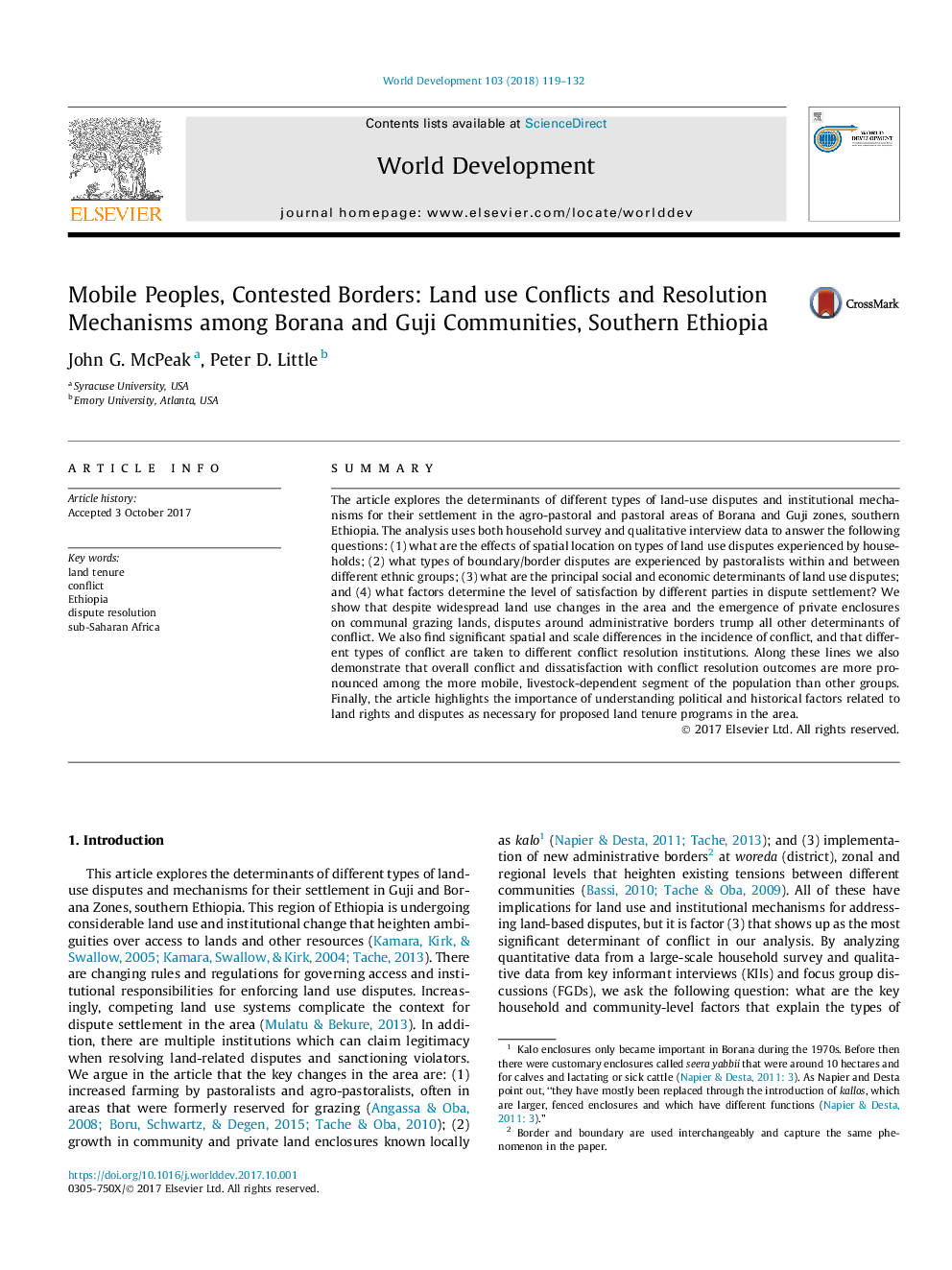| Article ID | Journal | Published Year | Pages | File Type |
|---|---|---|---|---|
| 7392239 | World Development | 2018 | 14 Pages |
Abstract
The article explores the determinants of different types of land-use disputes and institutional mechanisms for their settlement in the agro-pastoral and pastoral areas of Borana and Guji zones, southern Ethiopia. The analysis uses both household survey and qualitative interview data to answer the following questions: (1) what are the effects of spatial location on types of land use disputes experienced by households; (2) what types of boundary/border disputes are experienced by pastoralists within and between different ethnic groups; (3) what are the principal social and economic determinants of land use disputes; and (4) what factors determine the level of satisfaction by different parties in dispute settlement? We show that despite widespread land use changes in the area and the emergence of private enclosures on communal grazing lands, disputes around administrative borders trump all other determinants of conflict. We also find significant spatial and scale differences in the incidence of conflict, and that different types of conflict are taken to different conflict resolution institutions. Along these lines we also demonstrate that overall conflict and dissatisfaction with conflict resolution outcomes are more pronounced among the more mobile, livestock-dependent segment of the population than other groups. Finally, the article highlights the importance of understanding political and historical factors related to land rights and disputes as necessary for proposed land tenure programs in the area.
Related Topics
Social Sciences and Humanities
Economics, Econometrics and Finance
Economics and Econometrics
Authors
John G. McPeak, Peter D. Little,
